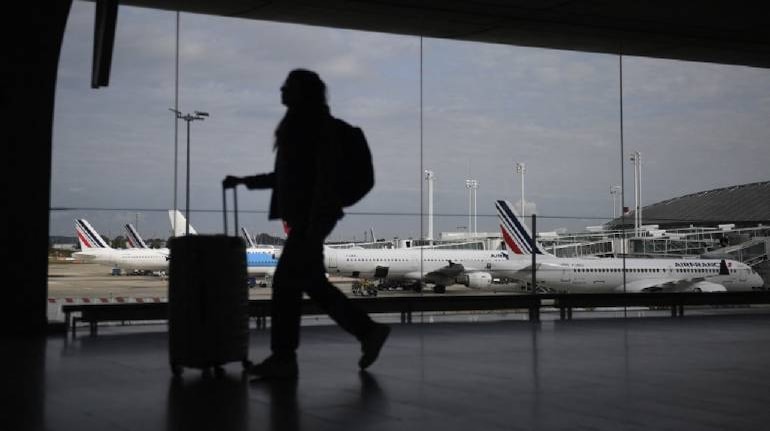



International passengers traveling to the United States no longer have to show proof of vaccination against COVID-19 as of midnight Thursday, when the coronavirus health emergency officially ended.
The Biden administration dropped its requirement for coronavirus testing last June but kept in place its vaccination policy for foreign travelers. In February, the House of Representatives voted to end the last remaining pandemic restrictions on May 11.
“As we continue to monitor the evolving state of COVID-19 and the emergence of virus variants, we have the tools to detect and respond to the potential emergence of a variant of high consequence,” President Joe Biden said in a proclamation published May 1.
“Considering the progress that we have made, and based on the latest guidance from our public health experts, I have determined that we no longer need the international air travel restrictions that I imposed in October 2021,” he added.
Why It Matters: Most other countries have dropped restrictions.
For 18 months during the height of the pandemic, the U.S. closed its borders to international travelers, separating families and costing the global travel industry billions of dollars.
In November 2021, those restrictions were eased, and international travelers were welcomed back to the United States with great fanfare. But foreign travelers were still required to be vaccinated and take a coronavirus test within three days of travel to all U.S. ports of entry. When the administration dropped its testing rule in June last year but kept vaccinations in place, it argued that they were still necessary to slow the spread of new variants of the virus entering the country.
As of last summer, the U.S. was one of the few remaining countries to maintain coronavirus travel restrictions, causing many travelers to choose alternative destinations that welcome them unconditionally.
The rules barred the world’s No. 1-ranked tennis player, Novak Djokovic, from competing in the U.S. Open in 2022 because he is not vaccinated.
Background: Spending by foreign travelers in the U.S. still lags.
The initial U.S. travel ban on international travel decimated the U.S. economy’s tourism sector and resulted in losses of nearly $300 billion in visitor spending and more than 1 million American jobs, according to the U.S. Travel Association, an industry group.
Until April last year, all passengers traveling to or within the U.S. were required to wear masks on airplanes — a contentious mandate that led to fistfights and altercations on planes and put off some international travelers from taking long-haul flights.
Even after the restrictions were eased, spending by international travelers in the U.S. was still down by 78% in March 2022 compared to 2019 levels and by 56% for business travel, the group said.
“Today’s action to lift the vaccine requirement eases a significant entry barrier for many global travelers, moving our industry and country forward,” U.S. Travel Association CEO Geoff Freeman said in a statement after the May 11 end date was announced.
(Author: Ceylan Yeginsu)/(c.2021 The New York Times Company)
Discover the latest Business News, Sensex, and Nifty updates. Obtain Personal Finance insights, tax queries, and expert opinions on Moneycontrol or download the Moneycontrol App to stay updated!
Find the best of Al News in one place, specially curated for you every weekend.
Stay on top of the latest tech trends and biggest startup news.